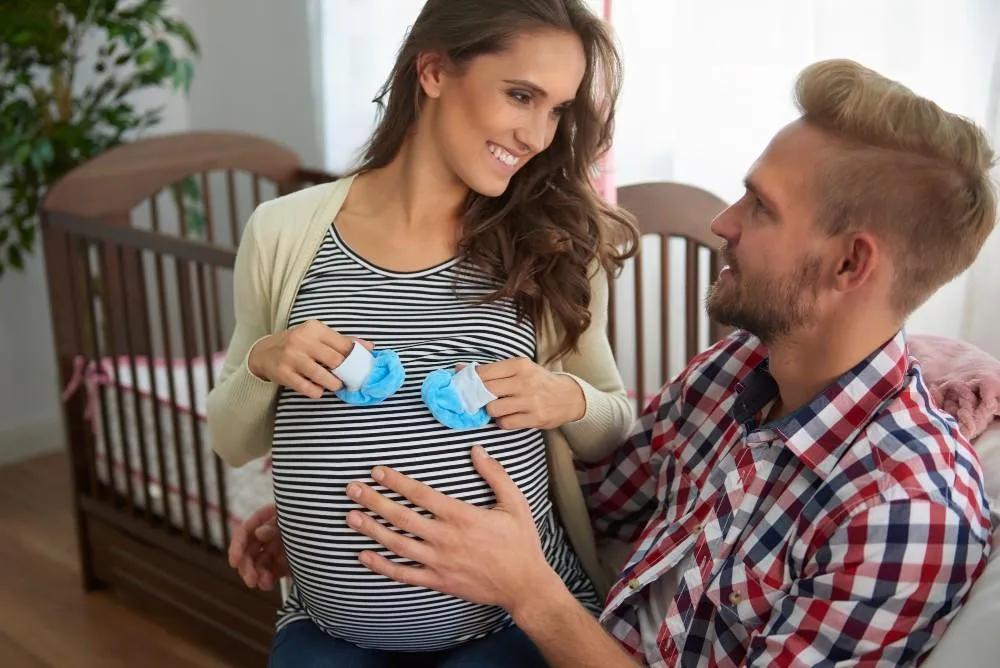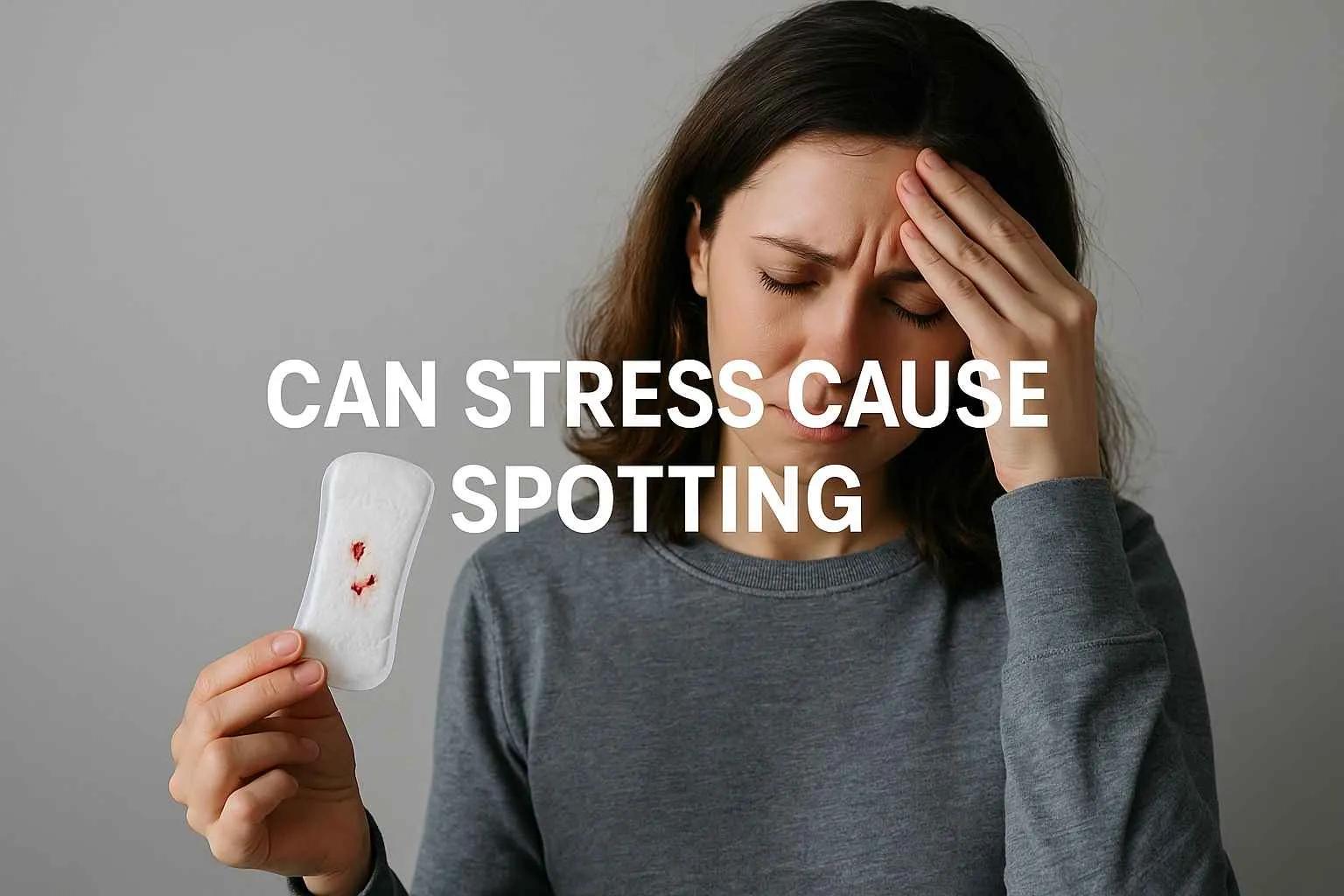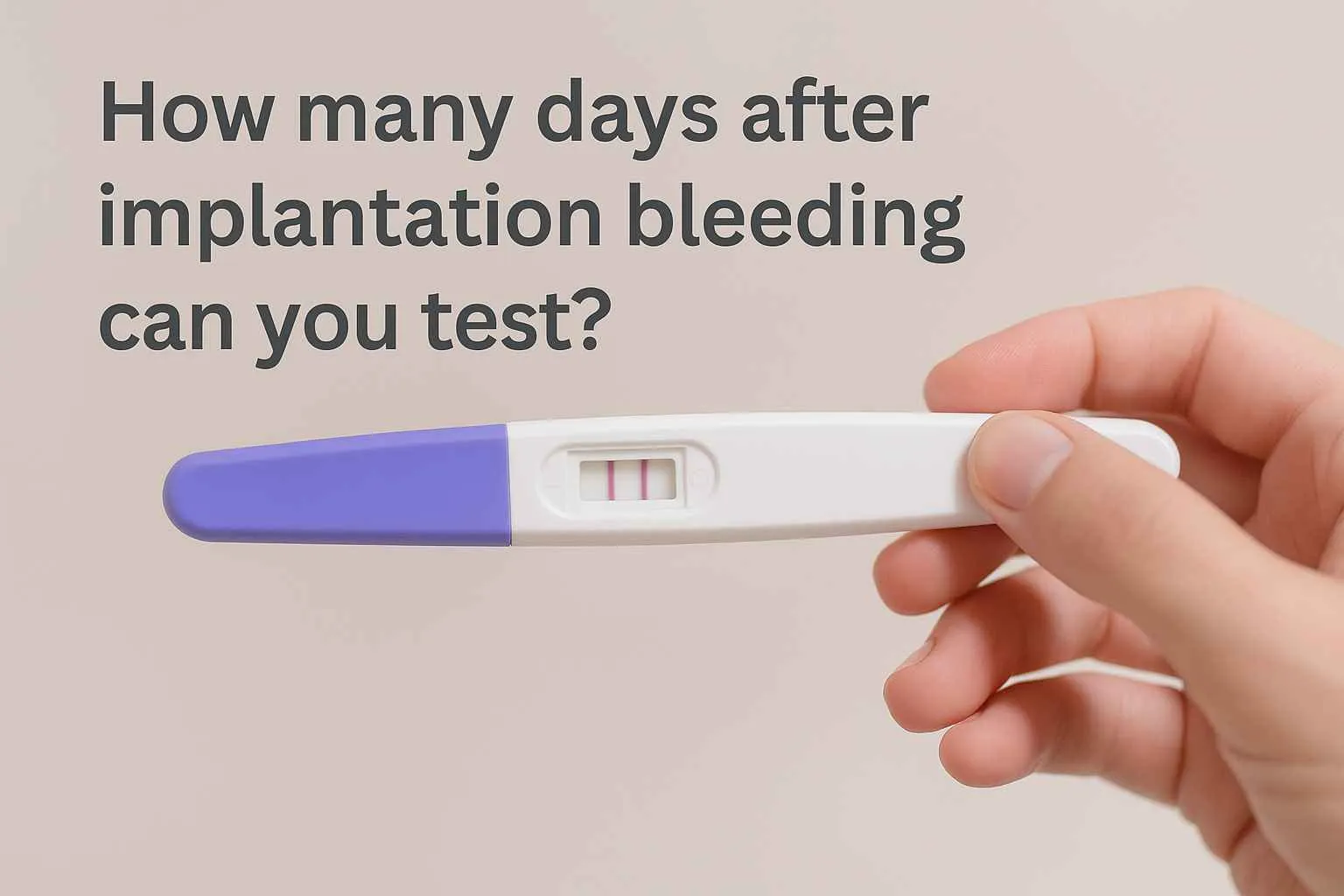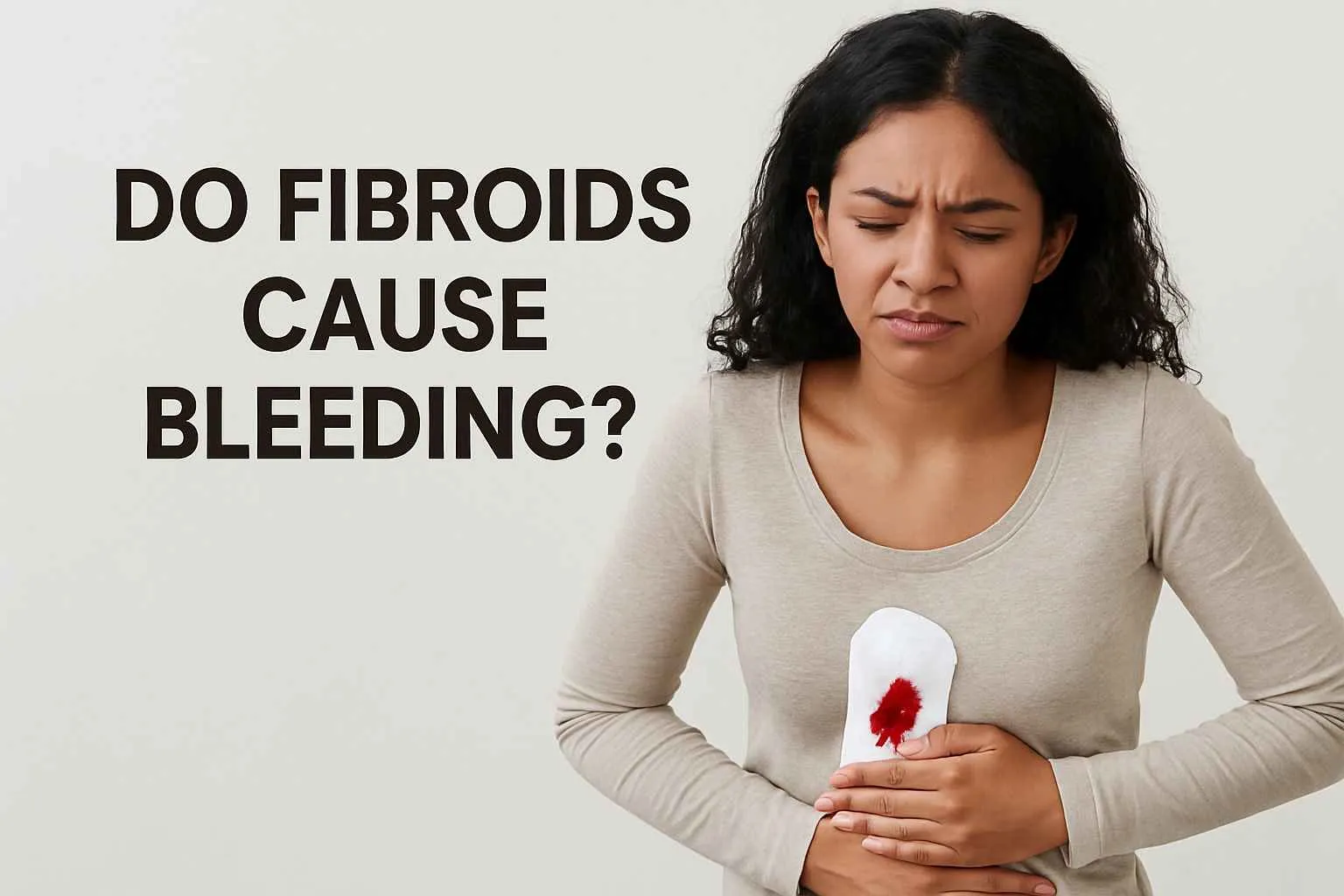Are painful periods a sign of good fertility? This question crosses the minds of many, especially when those monthly cramps feel unbearable.
There's this old wives' tale suggesting that if you experience painful periods, it somehow means that becoming pregnant must be easy for you in the future. But is this belief really true? The connection between period cramps pregnancy is something that intrigues a lot of people.
Understanding our bodies can sometimes feel like solving a big puzzle. Especially when it comes to fertility and menstrual health. Why does my period hurt so much? Does that mean my body is strong and ready for a baby? These questions are not only curiosity but also hope and anxiety about our health and future.
If you nodded in agreement, thinking of your own painful periods and wondering if you will ever be able to conceive a child, keep reading.
What Causes Period Cramps?
Dysmenorrhea, commonly known as period cramps, is a common experience most women go through. They can vary from mild to severe with some people describing them as throbbing or cramping pain in the lower abdomen area.
Though they are a regular feature of the menstrual cycle in many females, the intensity and discomfort level can be extremely different. Exploring what causes these cramps may help allay some concerns surrounding menstruation and fertility.
Also Read:7 Super Healthy Drinks That Help With Period Cramps
1. Prostaglandins and Cramps
Hormone-like chemicals called prostaglandins cause menstrual cramps. The body produces them to help the uterus contract during menstruation so that it gets rid of its lining. Menstrual cramps become more intense when there are higher levels of prostaglandins in your body.
The relationship between painful periods a sign of good fertility and prostaglandins is complicated. However, having a menstrual period does not automatically imply that one’s reproductive system is functioning well or shows aspects of fertile health.
2. Underlying Health Problems
Various conditions including endometriosis, adenomyosis, uterine fibroids and pelvic inflammatory diseases can exacerbate menstrual related problems such as dysmenorrhea which can impact fertility differently.
For instance, a study says if someone has endometriosis she may have very painful periods which may affect her chances of conceiving greatly though it doesn’t mean that anyone who suffers from this pain cannot get pregnant.
3. Link between Ovulation and Period Pain
Sometimes ovulation itself causes mittelschmerz—a mild to moderate pain on one side of the lower abdomen that happens when an egg is released from the ovary. This indicates that fertility is occurring and a woman may become pregnant.
Some women do not experience ovulation pain and this does not necessarily mean they have fertile health or can expect to experience period cramps.
These factors don’t directly answer if you're infertile do you still get a period but they highly affect the general menstrual health.
Do Regular Periods Indicate Fertility?
Understanding the rhythms of your menstrual cycle can give insights about your reproductive health. Do regular periods really indicate fertility?” It's wise to start with the basics. If you have consistent menstruation periods then you should be able to conceive normally.
A regular cycle means that things go as they should in your body. However, there are several other factors doctors consider in order to determine whether a person has reproductive health or not.
Many wonder how to have a painless period. Mild discomfort is normal but if you suffer severe pain each month, you should not simply endure it. Severe menstrual cramps require medical attention. Excessive pain ought not to be part of your monthly routine.
Recognizing Signs of Good Fertility
Let’s talk about signs of good fertility. The idea of fertility can be complex however there are some signs which could suggest that everything seems to be functioning well within your reproductive system:
- Regular Menstrual Cycles: This means you have a cycle length that is about the same every month, give or take a few days. It is one of the most obvious indications that your body is doing what it should be doing.
- Healthy Period Flow: Neither too heavy nor too light. A good balance denotes harmonious hormones.
- Mild Premenstrual Symptoms: It’s normal for some slight discomfort or moodiness before you see your period but it shouldn’t be so severe.
- Ovulation Signs: These can be things like a slight increase in body temperature or changes to cervical mucus in most women. Some ladies also feel a tiny pain on one side of their lower stomachs
- General Good Health: Such things as a balanced diet, regular exercise and healthy weight may support fertility.
It is not true that being pregnant with menstrual cramps is common. If you are experiencing period cramps pregnant, then you need to visit the doctor urgently.
Giving attention to what your body is telling you may help one enormously when planning for the future. Whether you anticipate pregnancy shortly or merely keeping tabs on your health care indicators, understanding these signs of good fertility will get you started in the right direction.
Can You Have Your Period and Be Infertile?
Having a period is often seen as a sign of fertility, but it's not always that simple. Some people ask, "Can a woman have their period and be infertile?" Yes, it's possible. Getting your period generally means your body is going through its regular cycle.
However, it doesn't guarantee everything is working perfectly with your fertility. This could be a shocking surprise for some. Now, let's explore some reasons why this can happen.
1. Hormonal Imbalances
Even if one has periods, hormonal imbalances can still impact fertility among other things such as PCOS (polycystic ovary syndrome) which causes irregular periods and unpredictable ovulation cycles. This means having regular periods are not always an indicator of proper hormonal balance for pregnancy.
2. Uterine Abnormalities
You might wonder, "If you're infertile, do you have a period?” The answer is not simple. Conditions like fibroids or polyps in your uterus can make you infertile yet you still continue having normal monthly cycles.
As a result, these growths may hamper the implantation of a fertilized egg or trigger miscarriages despite the fact that you seem to be having an ordinary menstrual cycle.
3. Fallopian Tube Damage
The state of your fallopian tubes is important for fertility because they carry eggs from your ovaries to your uterus. This infertility happens when the egg and sperm cannot join due to damage or blockage of these tubes, which might not prevent you from experiencing periods. Thus showing how this condition can occur without affecting your regular cycle.
4. Endometriosis
It’s painful when tissue similar to the lining inside the uterus grows outside it; this condition called endometriosis is a problem during menstruation as well. Does painful periods mean infertility?
Not necessarily, but some researchers say endometriosis, while those who suffer it will experience very painful menstruations and at the same time have infertility issues.
5. Age-Related Factors
As women age, fertility decreases naturally, and this is more so in their mid-30s and later. Although you may continue to have monthly periods regularly, the eggs’ quantity and quality decrease with time.
The development of such a change in your life makes it more difficult for you to become pregnant even if your menstrual cycle is very regular.
Can You Have a Painful Period and Be Pregnant?
When it comes to pregnancy, there's a lot of confusion around the symptoms and signs. One common question is, "Can you have a painful period and be pregnant?" It's crucial to understand that if you're truly pregnant, you won't have a regular period.
However, early in pregnancy, some women experience bleeding or symptoms similar to period cramps, which can be misleading.
1. Early Pregnancy Bleeding
It's not uncommon for some women to experience light bleeding or spotting in the early stages of pregnancy. This can be mistaken for a light period. Although it's not the same as a menstrual period, this bleeding can cause confusion.
It’s important to differentiate because menstrual-like cramping combined with light bleeding can be a sign of implantation.
Also Read:What is the Color of Implantation Bleeding?
2. Cramping in Early Pregnancy
Many women experience cramps during the early weeks of pregnancy. These cramps are usually mild and caused by the changes and growth happening in your uterus as it prepares to support a pregnancy.
While these are not menstrual cramps, they can feel similar, leading some to wonder if they're pregnant with menstrual cramps. This type of cramping without bleeding is often normal, but if you're concerned, it's best to consult with a healthcare provider.
3. Miscarriage Symptoms
In the unfortunate event of a miscarriage, a woman might experience cramping along with bleeding. This can sometimes be confused with a painful period.
It's important to recognize the other symptoms of a miscarriage, such as tissue passing through the vagina and more severe abdominal pain, and seek medical attention if suspected.
While are painful periods a sign of good fertility is a common query, experiencing pain does not directly correlate to pregnancy or fertility status. Painful periods can be a symptom of various conditions, some of which may affect fertility, but they are not a sign of pregnancy.
Final Thoughts
It's clear that the link between painful periods and fertility is complex. While experiencing menstrual cramps is common, severe pain shouldn't be ignored. If you've been wondering, "Are painful periods a sign of good fertility?" It is important to note that period pain is all about your menstrual health and less about your fertility status.
Severe discomfort could be a sign of underlying health issues that could impact fertility. So, consulting a doctor is a wise step if your period pain is interfering with your daily life.
अक्सर पूछे जाने वाले प्रश्नों
Does painful periods mean infertility?
No, painful periods do not directly mean infertility. While some conditions causing period pain can affect fertility, having cramps isn't an infertility diagnosis.
How to have a painless period?
While completely painless periods might not be possible for everyone, managing pain is achievable. Regular exercise, a balanced diet, staying hydrated, and over-the-counter pain relievers can help ease period cramps.
Does cramps mean ovulation?
Cramps can be a sign of ovulation for some women, known as mittelschmerz. This type of pain is typically milder than menstrual cramps and occurs mid-cycle, around the time of ovulation.
Why should I consult a doctor for menstrual pain?
If menstrual pain is severe or affects your daily life, it's important to consult a doctor. They can check for any underlying health issues that might be causing the pain and offer treatment options.
Can lifestyle changes reduce menstrual pain?
Yes, lifestyle changes like regular exercise, maintaining a healthy diet, and reducing stress can help alleviate menstrual pain.

लेखक





